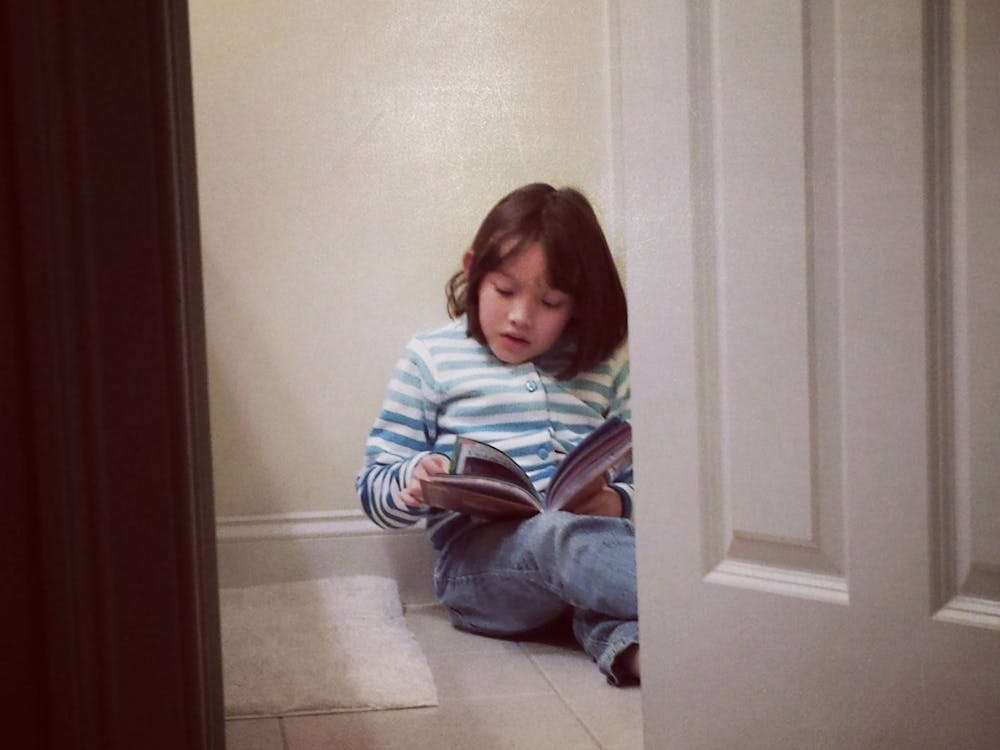Audrey: Humor me for a minute: When was the last time you heard someone mention poetry? Unless you’re one of us still clutching on to the dream of studying and writing poetry, it was probably a while ago. I’d even venture to guess that it wasn’t even in a conversation about poetry.
For example, “Have you seen Moonlight yet? That movie was poetry,” or “What a game! That hidden ball trick was poetic.” Or, in a short-lived, sci-fi TV show from 2008, The Middleman, there was even, “Their tofu scramble is a poem.”
Morgan: That’s very true. And yes, I was the one who said that Moonlight is like poetry. It seemed like a fitting comparison.
Audrey: Fair enough, and it definitely makes me want to go see Moonlight even more now. Plus, it’s not like the everything-is-poetry game is a new phenomenon: Honoré de Balzac’s 1835 novel Le Père Goriot has the line “Mais nos beaux sentiments ne sont-ils pas les poésies de la volonté?” (But are not our finer feelings the poetry of the will?)
I’m curious though: What do we mean by referring to something non-poetic and even non-literary as poetry?
Morgan: To me, referring to something as poetry is certainly a compliment. I’ll use the Moonlight comparison as an example. When I say that Moonlight is poetic, it means the film wasn’t just good or enjoyable, but it was beautiful and artful in its emotional intensity and impact.
The cinematography, the acting, the script and the score all combined to create a carefully crafted meditation on the human condition that I couldn’t describe as anything but poetic.
Audrey: And maybe there’s also an element of completeness or fineness of construction, as though there would be nothing to add or take away. These uses probably pack something of the punch of the formal elements of poetry, the discipline of meter, rhyme and form.
Morgan: Exactly. When I saw Moonlight, I thought it was designed in a very thoughtful and expressive way, like a poem. Each part of the film was like a stanza, and within that, each line of dialogue and facial expression was a unit of emotion.
You knew that the film had been carefully planned out; From the score to every individual frame, it all felt intentional in the same way that every word and line break is a conscious choice in poetry. And I don’t think many films are like that.
Audrey: That’s really interesting. So when we think of a tofu scramble as a poem, we’re not just talking about the hedonistic pleasure of tasty food. It does more than just satisfy a need or an urge; It fulfills itself in some way and becomes the best version of what it is.
Morgan: Similarly, people often talk about dancing as “poetry in motion” or “poetry of the foot.” Dancing is a celebration; Somehow, it seems to be the highest potential of motion.
Audrey: But there’s another question to address here. We’ve talked about what these descriptions say about the things described, but what does all this say about poetry?
For the most part, we don’t read poetry after we’ve graduated from high school and bid goodbye to the requisite Shakespeare plays and sonnets, yet why when we want to express something as elegant, do we turn to the blanket label of “poetry”?
Morgan: Well, that comparison has a lot to do with the historical value of poetry. Think of the lyric and epic poets of Ancient Greece and of Renaissance writers like Petrarch and Dante. They were venerated. Their works were considered to be important and significant. Aristocratic patrons dispensed huge sums of money to support their artistic endeavors.
Now, I don’t think that people attribute the same amount of worth to poetry as they did in previous eras. Poetry, for some, has been rendered obsolete and meaningless.
Audrey: Sadly. But maybe it’s a good sign that people are still talking, however circuitously, about poetry.
W. H. Auden’s “In Memory of W. B. Yeats” contains the often-quoted line “poetry makes nothing happen.” Most of the time, when people excerpt this line, it is to prove that poetry is as useless as the skeptics would have us believe, but those people leave out Auden’s material point: “poetry makes nothing happen: it survives.”
To an extent, survive is exactly what poetry has done, creeping into the daily discourse even as the poets themselves have fallen out of fashion with the mainstream.





